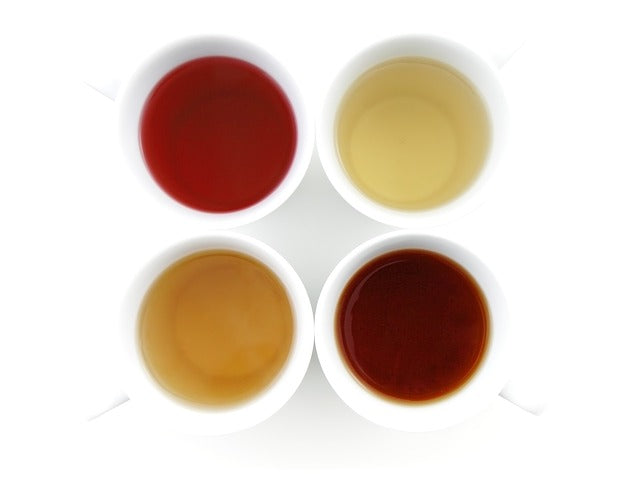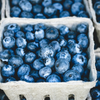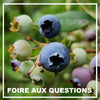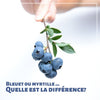What is the difference between tea, herbal tea and rooibos…?

Reading time: 5 minutes
Discover in a few minutes the difference between tea, herbal tea and rooibos.
What is tea?
The beverages that are referred to as “tea” are infusions made from the leaves of the tea tree, the tea tree known as Camellia Sinensis .
This small shrub is usually grown in China, Sri Lanka or India. There are no varieties growing naturally in Quebec. That's why we have to import it.
What is Rooibos?
It is often called red tea , but it is not tea! The difference between the two is that Rooibos is not a shrub from the Camellia Sinensis family. In fact, rooibos takes its name from an African shrub that has nothing to do with the tea plant.
Know that rooibos does not contain any caffeine or theine. In addition, it contains very little tannin (it is the tannins that give a bitter taste to long-infused tea) which makes it a very delicate drink without the stimulating effects of tea.
Another attraction for rooibos is that it has virtues and properties beneficial to health, particularly in the fight against allergies, sleep disorders, the fight against eczema or even gastrointestinal disorders. Part of its benefits would also be attributable to the presence of antioxidants.
What is a herbal tea?
Herbal tea is a mixture of different plants other than tea. Often there is mint, chamomile, fruit or other types of herbs. For example, our fruity blueberry herbal tea contains hibiscus petals as well as cornflower petals and dried blueberries.
Like tea, herbal tea has many health benefits. Among other things, it allows you to hydrate, relieve digestive problems and reduce the inconvenience associated with colds and the flu.
What is the difference between tea and herbal tea? There are two important differences from tea. First, the herbal tea does not contain tea leaves, but is composed of other plants. Next, herbal tea, unlike tea, needs to steep much longer than tea (about 5-10 minutes vs. 1-2 minutes for tea) and at a much higher temperature (100°C vs. 80-95°C). This method of infusion ensures that all the aromas and virtues of the plants are revealed.
Do herbal tea, tea and rooibos contain caffeine?
Yes. Tea, like coffee, contains caffeine which is called “theine”. It is actually the same chemical molecule as caffeine, namely 1, 3, 7-trimethylxanthine. However, herbal tea and Rooibos do not contain caffeine or theine. Thus, it is preferable to favor the latter if you are sensitive to the stimulating effects of caffeine.
Why two names to designate the same thing? Simply because the caffeine molecule comes from coffee while the theine molecule is found in tea.
Indeed, the German chemist Runge discovered in 1819 this molecule in coffee beans which he then named Kaffein , which became Caffeine in French. A few years later, a certain Frenchman Alphone Oudry discovered in 1827 a molecule contained in the leaves of the tea tree which he baptized theine.
It wasn't until the late 1830s that it was discovered to be the same molecule.
Do caffeine and theine have the same effects?
No. Coffee is naturally more stimulating than tea simply due to the fact that it contains more of this molecule than tea for the same number of grams.
Another explanation is that the theine molecule takes longer to assimilate by the body, which makes its stimulating effect more diffuse. Indeed, the effects of coffee last between 2-3 hours while tea can last more than 8 hours.
In this case, we will say that the tea stimulates while the coffee excites.
Which teas contain the most caffeine?
The theine content will depend on several factors: the infusion time, the time when the tea is harvested, the variety of tea and its oxidation. As such, our teas have indications as to their theine content.
If you want to change the theine content of your drink, just change its infusion time. Indeed, the less time you infuse your tea (less than 3 minutes), the greater the amount of theine will be in your tea. This phenomenon is explained by the fact that the longer your tea infuses, the more it releases tannins. It is the tannins that give the tea a bitter taste and partially neutralize the caffeine contained in the infusion during digestion.









Bonjour. Est-ce que la tisane ( celle que je prends est à la poire/vanille, donc un jaune sombre) contient du tanins ? ( J’ai précisé la couleur car mon dentiste m’a posé la question).
Merci
Un message suite à un commentaire précédent et pour apporter des précisions : le café n’est pas “nocif”, comme tout produit sur cette planète il faut éviter d’en prendre trop. ça reste un produit antioxydant, avec des propriétés antidépressives, il annule l’effet d’une molécule appelée adénosine et qui s’accumule dans le cerveau au cours de la journée causant l’effet de fatigue. Les effets positifs de la théine/caféine sont innombrables, mais comme pour tout la modération a du bon! Bonne journée
J aimerais savoir si votre boutique est réouverte. Je suis intéressé par votre rooibos.
Je pense que votre site va m’intéresser car je buvais beaucoup de thé pensant qu’il était moins nocif que le café !!!!!
Vive le Rooibos